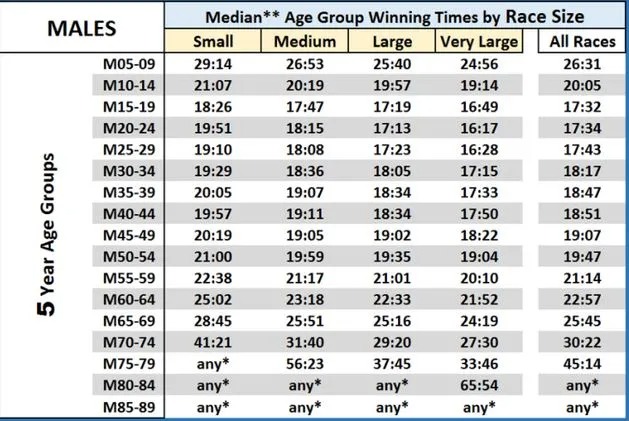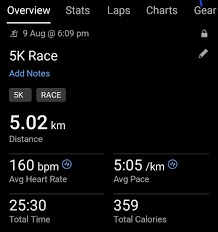Do you know how long it takes to run a 5 kilometer distance? Whether you’re a beginner wondering about your first 5km run time or an experienced runner looking to improve your personal best, understanding average running times and effective training methods is crucial for success.
Running 5 kilometers is an achievable goal for most people with proper preparation and training. If you’ve ever considered outdoor running as exercise, timing yourself becomes essential to track progress and set realistic goals.

What is the Average 5km Run Time?
The average 5km run time varies significantly based on age, training experience, gender, and fitness level. For most people, completing a 5K takes between 20 to 45 minutes, depending on their current fitness condition.
For an average adult running at moderate pace: approximately 30-32 minutes to complete 5km. This translates to a pace of about 6 mph (9.6 km/h).
For well-trained, fit runners: around 20-25 minutes to complete the distance, thanks to consistent training, better fitness levels, and race experience.
Average 5km Run Times by Age Group
Understanding realistic 5km run time expectations based on your age group helps set appropriate goals:
| Age Group | Male Average | Female Average |
|---|---|---|
| 20-29 | 22-28 min | 26-32 min |
| 30-39 | 24-30 min | 28-34 min |
| 40-49 | 26-32 min | 30-36 min |
| 50+ | 28-35 min | 32-38 min |
Note: These are general averages. Individual performance varies based on training, genetics, and overall health.

Setting Realistic 5km Run Time Goals
Progressive goal setting ensures sustainable improvement in your 5K performance:
Beginner Goal: Complete 5km without stopping (35-45 minutes)
- Focus on building endurance over speed
- Walk-run intervals are perfectly acceptable
Intermediate Goal: Sub-30 minute 5km
- Consistent training 3-4 times per week
- Mix easy runs with moderate-pace sessions
Advanced Goal: Sub-25 minute 5km
- Structured training with speed work
- 4-5 training sessions weekly
Elite Goal: Sub-20 minute 5km
- High-level training program
- Competitive racing experience
Tips to Improve Your 5km Run Time
1. Add Speed Work
To run faster 5K times, incorporate speed training into your routine. Start with shorter sprints (30-50 meters) and gradually build to 80-meter intervals. Speed work directly improves your anaerobic capacity and running economy.
2. Strength Training for Runners
Your 5km run time won’t improve through running alone. Target key muscle groups:
- Calves, glutes, and core: Essential for power generation
- Recommended exercises: Squats, step-ups, lunges, calf raises, planks
- Frequency: 2-3 strength sessions per week
3. Hill Training
Short uphill runs develop both strength and speed simultaneously. Hill sprints improve:
- Muscle power and running efficiency
- Cardiovascular capacity
- Injury resistance through improved muscle flexibility
4. Proper Running Footwear
Quality running shoes significantly impact your 5km run time and injury prevention. Look for:
- Flexible soles with appropriate cushioning
- Proper fit with adequate toe room
- Shoes suited to your running gait and foot type
For detailed reviews and recommendations on the best running shoes for 5km training, visit shoeexpert.net where you’ll find comprehensive guides to choosing the perfect running footwear for your specific needs and running style.
5. Comfortable Running Gear
- Socks: Choose moisture-wicking, snug-fitting athletic socks to prevent blisters
- Clothing: Wear breathable, loose-fitting apparel that allows full range of motion
- Weather-appropriate gear: Adjust clothing based on running conditions
Pre and Post-Run Nutrition for Better 5km Times
Before Your 5km Run:
- Timing: Light snack 30-60 minutes before running
- Hydration: Drink water 2-3 hours prior to avoid cramping
- Food choices: Banana, toast, or small energy bar
After Your 5km Run:
- Recovery window: Consume protein + carbohydrates within 30 minutes
- Hydration: Continue drinking water to replace lost fluids
- Sample post-run snacks: Greek yogurt with berries, chocolate milk, or protein smoothie

What to Expect After Your First 5km Run
First-time 5K runners commonly experience:
Muscle Soreness: Normal post-exercise soreness, especially in legs and calves. This diminishes with regular training and proper recovery.
Muscle Stiffness: Temporary leg stiffness from fatigued muscles. Combat this with gentle stretching, hydration, and light movement.
Minor Aches: Occasional back or stomach discomfort that typically resolves quickly with adequate rest and nutrition.
Recovery tip: These symptoms are temporary and improve significantly as your body adapts to regular running.
Health Benefits of Regular 5km Running
Consistent 5K training provides numerous health advantages:
Cardiovascular Health
- Reduces high blood pressure: Aerobic exercise opens blood vessels, improving circulation
- Strengthens heart muscle: Enhanced cardiac efficiency and stroke volume
Mental Health Benefits
- Improved mood: Running releases endorphins, natural mood elevators
- Better brain function: Increased oxygen-rich blood flow enhances cognitive performance
- Stress reduction: Physical activity helps manage daily stress levels
Musculoskeletal Benefits
- Stronger bones: Weight-bearing exercise increases bone density
- Improved knee health: Contrary to common belief, running strengthens knee joints when done properly
- Enhanced muscle tone: Regular running develops lean muscle mass
Creating Your 5km Training Plan
Week 1-2: Base Building
- Run 3 times per week
- Focus on time, not speed
- 20-30 minutes easy pace
Week 3-4: Building Endurance
- Increase one run to 35-40 minutes
- Add gentle hill walking
- Maintain easy, conversational pace
Week 5-6: Speed Introduction
- Add 1 speed session weekly
- Include 4-6 x 30-second fast intervals
- Recovery between intervals important
Week 7-8: Race Preparation
- Practice race pace during training
- Reduce volume, maintain intensity
- Focus on consistent pacing
Final Thoughts on 5km Run Time Improvement
Improving your 5km run time is absolutely achievable with consistent training, proper preparation, and realistic goal setting. Whether you’re aiming to complete your first 5K or break a personal record, remember that progress takes time and patience.
Most beginners can complete a 5km run within 2-3 months of consistent training. With dedicated effort, achieving a sub-30 minute 5K is realistic for most recreational runners within 6 months.
The key to faster 5km run times lies in consistency, gradual progression, and listening to your body. Start where you are, be patient with the process, and celebrate every milestone along your running journey.
Ready to start your 5K journey? Remember that every expert runner was once a beginner. Your first step is often the hardest, but also the most important toward achieving your 5km run time goals.
For more expert advice on running gear and footwear selection, visit shoeexpert.net to discover the best equipment for your training needs.


